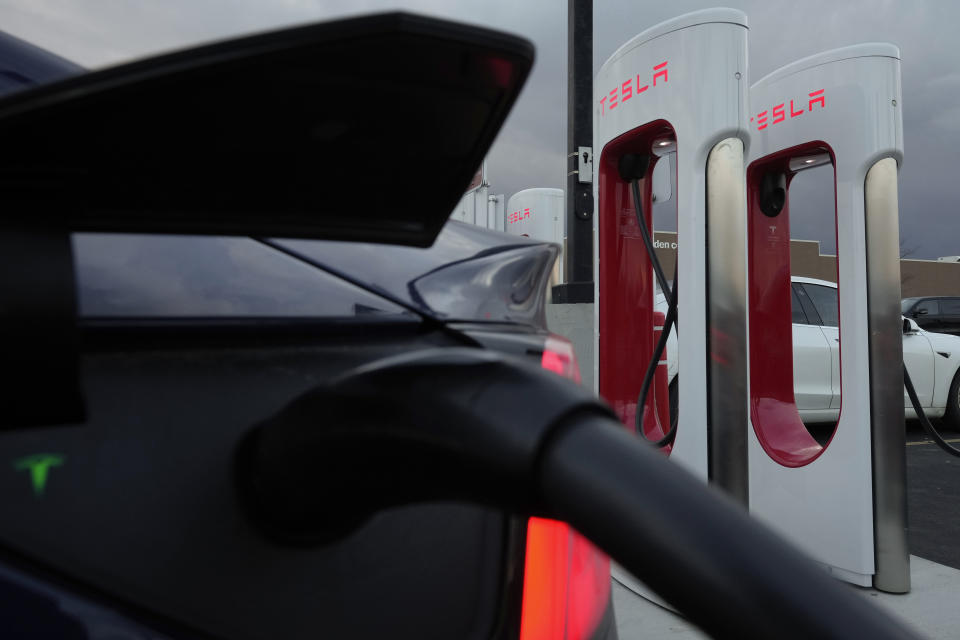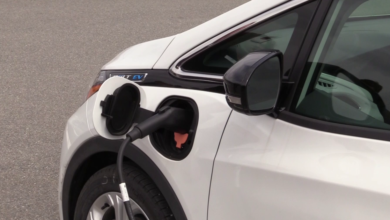Consumer interest in EVs just dropped for the first time in 3 years

A new report from automotive research firm J.D. Power noted fading EV interest from American consumers.
For the first time since J.D. Power began its Electric Vehicle Consideration Study in 2021, EV buying sentiment has dropped.
The latest edition of the study revealed that 24% of respondents say they are “very likely” to consider purchasing an EV, down from 26% a year ago.
In addition, the percentage of shoppers who say they are “overall likely” to consider purchasing an EV decreased to 58% from 61% last year.
According to the survey, the decline in enthusiasm for EVs can be traced to charging. Or a lack thereof.
Among shoppers who say they are “somewhat unlikely” or “very unlikely” to consider an EV, J.D. Power said 52% cited a “lack of charging station availability” as a reason for rejection — the highest proportion in the study. And these concerns about charging availability have risen, up 3% from a year ago.
Chief among those concerns is likely what’s happening with Tesla’s Supercharger network, the country’s largest.
Earlier this month Tesla CEO Elon Musk laid off nearly the entire Supercharger organization, which was responsible for the build-out of its best-in-class charging network.
Musk then backtracked on his initial stance and is promising to invest in growing the network, but the optics of the move certainly won’t help charging availability concerns. The company has since begun hiring some of the employees back.
Automakers like GM, Ford, Kia, Polestar, Stellantis, Honda, and others had signed up to access the Supercharger network and incorporate Tesla’s NACS plug inlet in their future vehicles, under the promise that the Supercharger network would continue to grow at a steady pace.

But the changing EV sentiment is more than just grappling with public charging infrastructure. The J.D. Power survey found that overall higher prices for EVs, limited driving distance (range anxiety), long charging times, and inability to charge at both home or work were also main concerns.
J.D. Power says more education about incentives like tax credits will help boost sales, but much work still needs to be done on the part of automakers, and perhaps the federal government, which has bet heavily on EV adoption in the country.
“As understanding of EV incentives rises, so does the likelihood of consideration. However, approximately 40% of shoppers say they do not have a solid understanding of such incentives,” said Stewart Stropp, J.D. Power’s executive director of EV intelligence. “Prioritizing initiatives and efforts to educate consumers about the EV proposition — including available incentives and how they work — is vital to accelerating market growth.”
State and federal tax credits are certainly helping to make EVs more affordabile, but at the moment only 15 full EVs qualify for full or partial federal tax credits. Many Americans are likely unaware that any EV sold in America, regardless of country of production or battery sourcing requirements, can get the full federal tax credit of $7,500 if purchased through lease.
Nevertheless, cost considerations led to automakers adding incentives and cutting prices of to boost EV sales. Even Tesla earlier this month started offering 0.99% financing for new Model Y purchases for a limited time.
Perhaps suprisingly, even younger generations of buyers, who typically are in favor of new technology and greener transportation options, also expressed diminishing EV enthusiasm in the J.D. Power survey.
“The lack of affordable EV models is affecting the two youngest buyer cohorts, Gen Z and Gen Y, with ‘very likely’ consideration down 2 and 5 percentage points year over year, respectively,” J.D. Power said.
Still, those cohorts do offer the most optimism for EV consideration, with 24% of Gen Z and 32% of Gen Y (Millennial) shoppers claiming they are “very likely” to consider an EV, more than the other generational cohorts J.D. Power surveyed.
J.D. Power’s data comes via responses from 8,179 consumers and was conducted from January through April 2024.
Pras Subramanian is a reporter for Yahoo Finance. You can follow him on Twitter and on Instagram.
Click here for the latest stock market news and in-depth analysis, including events that move stocks
Read the latest financial and business news from Yahoo Finance



